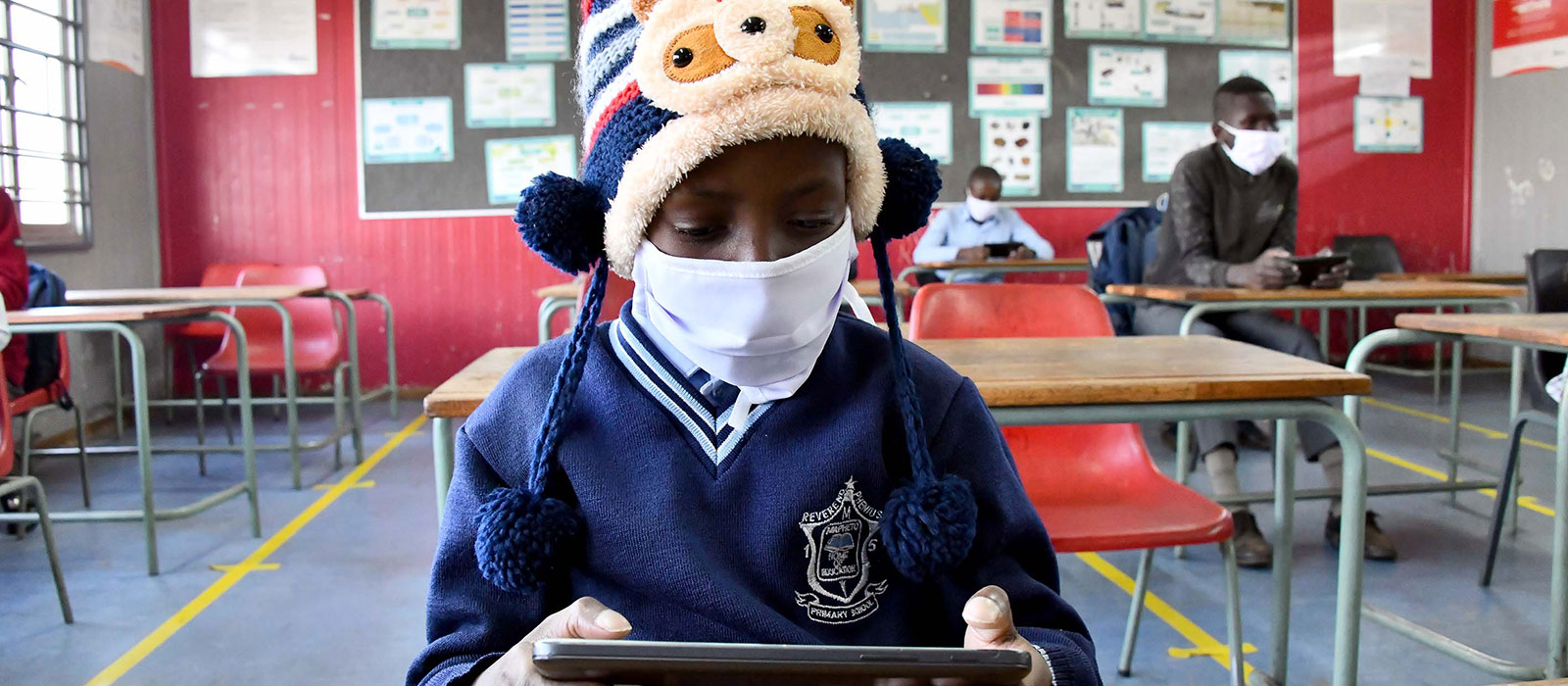To go back a little – in February 2019, Côte d’Ivoire hosted the launch of the Abidjan principles on the human rights obligations of states to provide public education and to regulate private involvement in education. The Abidjan principles were developed through a consultative process, by a group of experts. They were prompted by concerns about the rapid expansion of the involvement of private actors in education, and aim to provide clarity and guidance regarding the state’s obligations. These principles were welcomed by the UN Human Rights Council in their resolution on the right to education on the 9th of July 2019. The principles also attracted positive attention within the African Human Rights system, in resolutions regarding State obligations to regulate private actors, and to develop norms in that regard.
In a pre-COVID article published in UNESCO’s Humanistic Futures of Learning in January 2020, I pointed out that when it comes to thinking about the future of education, we tend to turn to the private sector for ideas. I reflected on the fact that many people lack faith in governments as innovators, and turn to entrepreneurs when out-of-the-box thinking has to be done.
For those who see #education as a commodity, #COVID-19 is an opportunity to expand edu-business @askelton_CCL
Tweet
Fast forward to the COVID-19 pandemic, and its ravages on the education system in Africa. Private education was already a risk for large parts of the continent because states struggling to implement the right to free public education for all had in many instances allowed the private sector to move into the education space. In some cases, this has led to the hollowing out of the education system, and in all too many situations, parents are paying for poor quality education at low fee private schools.
COVID-19 has added to this problem, because during the pandemic, as education systems reeled under lockdown, governments in many countries turned to the private sector to find solutions. Williamson and Hogan, in a study published by Education International Research, have identified a number of ways in which private actors have advanced the commercialisation of education during the pandemic. These begin with edu-tech being promoted as both a short and long term solution to education, which if unchecked, will see tech companies becoming permanently embedded in the education system – and public-private partnerships in education policy being enhanced. Coalitions and philanthropic actors are also moving into this space, with World Bank and OECD working with the Gates Foundation and the Chan Zuckerberg Initiative. For those who see education as a commodity, COVID-19 is an opportunity to expand edu-business.
The rise of technology in education has been given a boost, and that is seen by many as an idea whose time has come. However, in Africa we will have to be vigilant about the effects in countries that are characterised by gross inequalities and wide-spread poverty, with a wide urban-rural divide. If internet connectivity, inexpensive data and open access to information are going to become new staples of the education system, poor children are very likely to be left further behind.
Equal access to quality inclusive #education cannot be achieved through a market driven, commercialised education system @askelton_CCL
Tweet
Private sector schools have also been impacted by the pandemic, with many parents unable or unwilling to pay fees. GEM’s World Education blog reveals that in Kenya and Liberia, there were reports that Bridge International Academies had drastically reduced teacher’s salaries. In the Congo and Cote d’Ivoire, governments stepped in to assist private schools, and similar calls for assistance were voiced in Togo and Mauritius. In Morocco, government’s intention to provide support for private schools during the pandemic from its COVID-19 crisis fund was blocked by education unions. The UN Special Rapporteur on the Right to Education, in her report on the impact of COVID-19 on Education, expressed concern about the closure of low-cost private schools, many of which may be unable to re-open, and the likelihood that this will leave many children out of school in the future. The Special Rapporteur also pointed out that States should prioritise the funding and provision of public schools.
There is no going back, but in going forward governments will have to strengthen their resolve to ensure that there is an ongoing investment in free, public and inclusive education systems. Equal access to quality inclusive education cannot be achieved through a market driven, commercialised education system. Regulation of private education is going to continue to be important, not just in the running of schools, but also in the edu-tech goods and services space, or we might just wake up and find that education has been sold to Google or Microsoft. The Abidjan principles provide comprehensive guidance that states can draw on, and in a positive step forward, the African Commission has started to develop norms on states’ obligations to regulate private actors in the sphere of social services, including education. These normative frameworks can help states to shore up public education systems as they emerge from the setbacks caused by COVID-19, and provide direction in regulating private sector involvement in education, going forward.
Professor Ann Skelton holds the UNESCO Chair: Education Law in Africa and is the Director of the Centre for Child Law based at the University of Pretoria.


